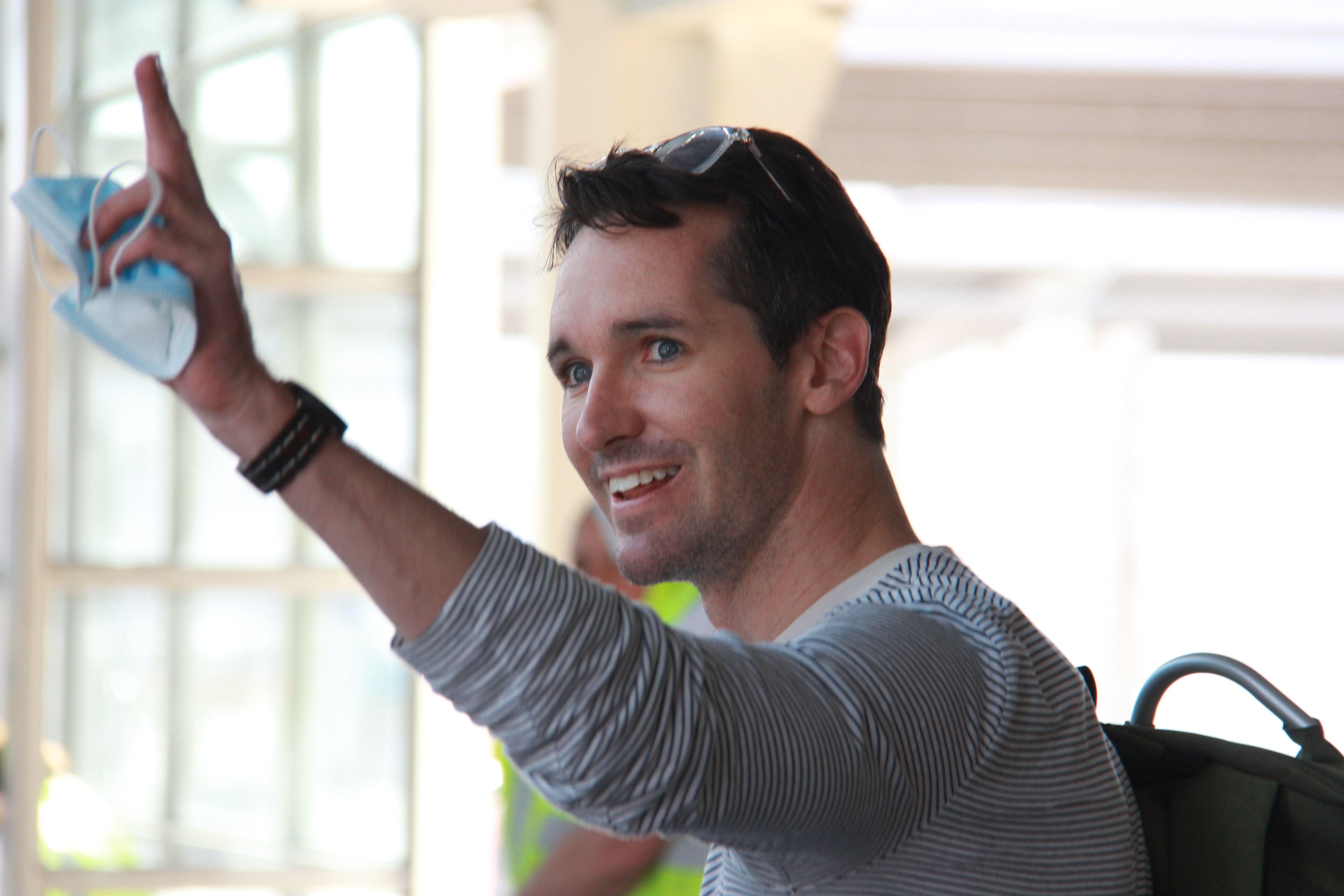Australian journalists flown out of China after being ‘targeted’ in diplomatic row
‘It’s a relief to be back in a country with genuine rule of law,’ says ABC reporter

Your support helps us to tell the story
From reproductive rights to climate change to Big Tech, The Independent is on the ground when the story is developing. Whether it's investigating the financials of Elon Musk's pro-Trump PAC or producing our latest documentary, 'The A Word', which shines a light on the American women fighting for reproductive rights, we know how important it is to parse out the facts from the messaging.
At such a critical moment in US history, we need reporters on the ground. Your donation allows us to keep sending journalists to speak to both sides of the story.
The Independent is trusted by Americans across the entire political spectrum. And unlike many other quality news outlets, we choose not to lock Americans out of our reporting and analysis with paywalls. We believe quality journalism should be available to everyone, paid for by those who can afford it.
Your support makes all the difference.The last two journalists working for Australian media in China have left the country after police temporarily blocked their departures in a diplomatic stand-off, the Australian government and their employers have said.
The Australian Broadcasting Corporation (ABC)’s Bill Birtles and The Australian Financial Review’s Michael Smith landed in Sydney after flying from Shanghai on Monday night, both news outlets reported.
Both said they had sheltered in Australian diplomatic compounds in recent days and had been questioned by police about a national security case involving another journalist.
Mr Birtles told reporters at Sydney’s airport that his departure was a “whirlwind and ... not a particularly good experience,” adding: “It’s a relief to be back in a country with genuine rule of law.”
The Australian government revealed last week that Australian citizen Cheng Lei, a business news anchor for CGTN, China’s English-language state media channel, had been detained.
Both journalists were told they were “persons of interest” in an investigation into Mr Cheng, The Australian Financial Review reported. Seven uniformed police visited each journalist’s home in Beijing and Shanghai at 12:30 a.m. Thursday, the newspaper said.
Mr Birtles was due to depart Beijing on Thursday and was holding a farewell party on Wednesday when police came to his apartment and told him he was banned from leaving the country, ABC said.
He was told he would be contacted to organise a time to be questioned about a “national security case,” his employer said.
Mr Birtles then went to the Australian Embassy, where he spent four days while Australian and Chinese officials negotiated. Mr Smith had similarly holed up at the Australian Consulate in Shanghai. Both journalists said they had agreed to give police brief interviews in return for being allowed to leave the country.
Mr Birtles told the ABC said he believed they had been targeted for “harassment of the remaining Australian journalists” rather than a “genuine effort to try and get anything useful” in the case related to Ms Cheng.
Mr Smith told his own newspaper: “The late-night visit by police at my home was intimidating and unnecessary and highlights the pressure all foreign journalists are under in China right now.”
Australia’s foreign minister Marise Payne confirmed that her government had provided consular support to the two journalists to assist their return home.
She said: “This is a very disappointing series of events, and I’m also very disappointed that we have major media organisations disrupted in their ability to report on China.”
ABC’s news director Gaven Morris said Mr Birtles was brought back to Australia on the Australian government’s advice – but said the company would try to get a correspondent back into China to resume reporting duties.
“This bureau is a vital part of the ABC’s international news-gathering effort and we aim to get back there as soon as possible,” Morris said.
The Australian Financial Review’s editor-in-chief, Michael Stutchbury, and editor, Paul Bailey, described the situation as “disturbing”.
Relations between China and Australia were already strained by Australia outlawing covert interference in politics and banning communications giant Huawei from supplying critical infrastructure.
They have worsened since the Australian government called for an independent inquiry into the origins of and international responses to the coronavirus pandemic.
Australia’s journalist union, Media Entertainment and Arts Alliance, said China was no longer safe for foreign reporters. “These outrageous attacks on press freedom place any foreign correspondents reporting from China at risk,” union president Marcus Strom said in a statement.



Join our commenting forum
Join thought-provoking conversations, follow other Independent readers and see their replies
Comments